Marymount
International Baccalaureate Middle Years Programme
- Marymount Academy offers an International Baccalaureate Middle Years Programme. In every level there is a group of students enrolled in the program. Once registration in secondary 1 is confirmed, students and parents are invited to have a placement interview with the IB Coordinator. As an IB student, here’s what you can expect:
- Your classes will be different. If you choose IB, the Grade 7 and 8 courses of History, Geography and Science are conducted in French (Histoire, Géographie, Sciences). You will also take Spanish in grades 7 and 8.
- Being in IB means that you will be considering your role as a learner within the community you inhabit- this includes the classroom, school, city, and even world! You’ll be taught so that you reflect on how you relate to the world you’re in.
- Outside of the classroom as an IB student you will complete annual community and service initiatives, and eventually in grade 11, you’ll get to work on a self-directed Personal Project.
- After successfully completing all 5 MYP years of IB at Marymount Academy, and all other IB requirements, students will receive a Record of Achievement from the IB central offices, and a local IB MYP Certificate.
In general, Marymount is a place where collectively we are encouraged to think with an international frame of mind. This worldly perspective is also represented in the many international students that attend the school every day. If IB doesn’t sound right for you, no problem you can also register for our general program in grade 7!
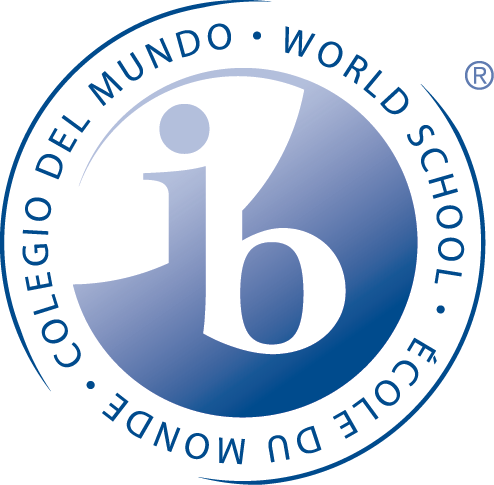
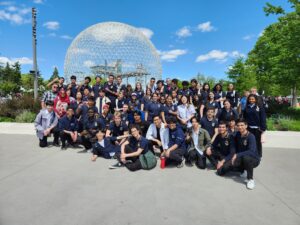
STUDENT VOLUNTEERING
Although giving back to the community is a required component of the IB programme, many of the Marymount student population are actively involved in and outside of the school. Working together, helping others, and developing skills through hands-on experiences is a great way to take learning beyond the classroom! Two examples are community day and the tutoring program.
COMMUNITY DAY
Every year, our school welcomes grade 6 students from elementary schools in the surrounding area to show them what it means to be a student at Marymount Academy International. We give students a chance to meet with teachers as they are guided through the school by our leadership and IB students.
TUTORING PROGRAM
Outside of community day, our cycle two students (secondary 3-5) volunteer to tutor students in up to 10 different elementary schools every Wednesday after school. Our students love getting to meet and support students and teachers. Some elementary schools request help in homework programmes, while others place our students directly in the classroom.
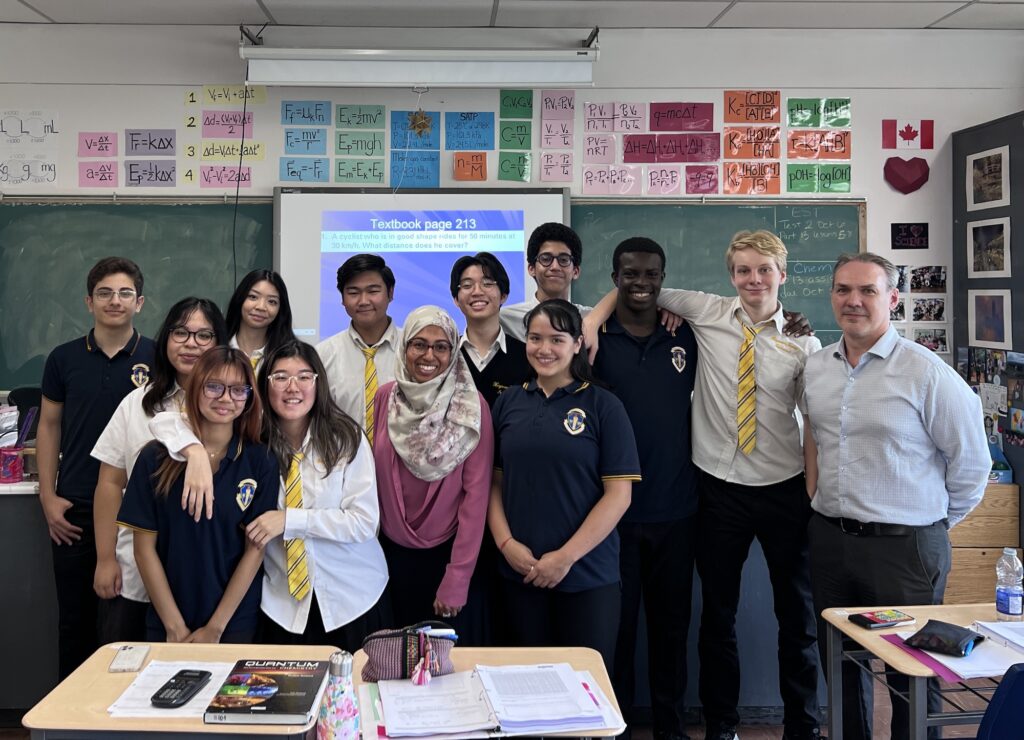
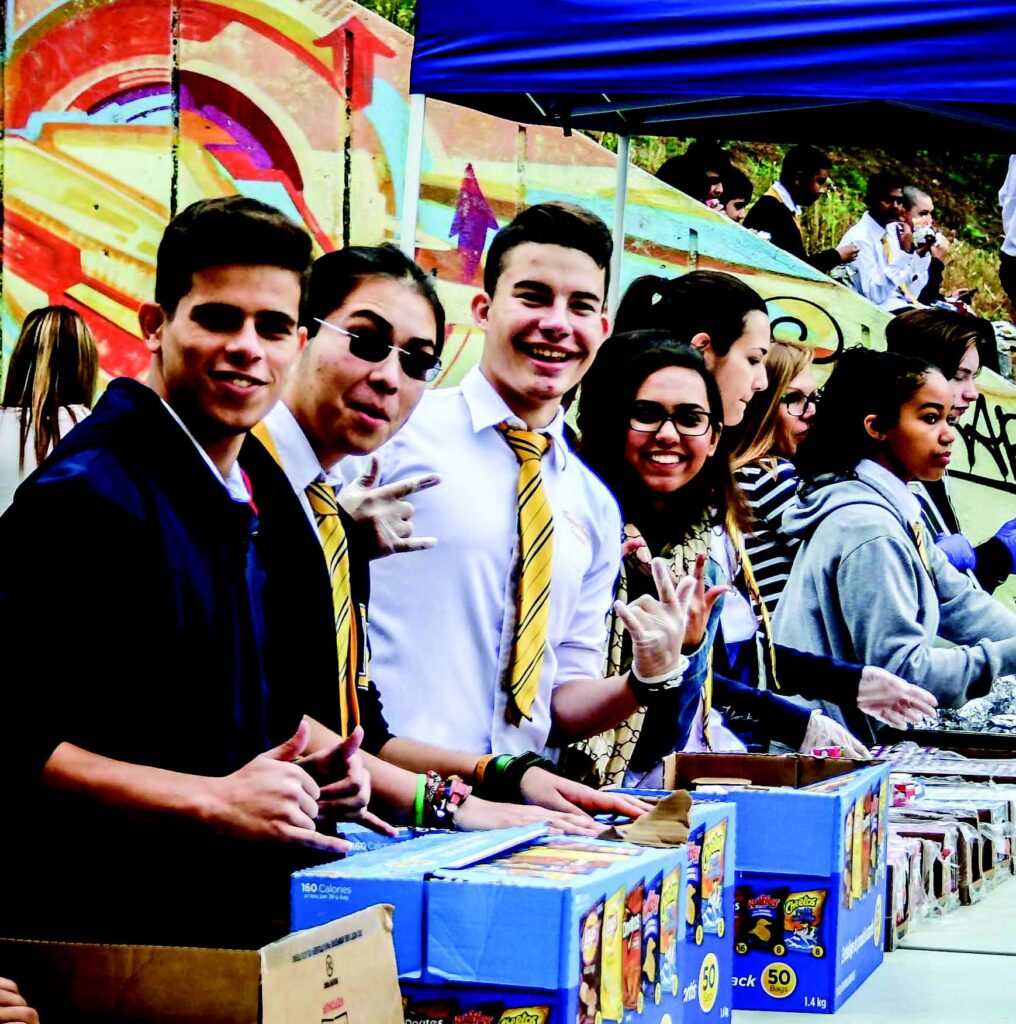
The IB Middle Years Programme (MYP) is designed for students aged 11 to 16.
This period, encompassing early puberty and mid-adolescence, is a particularly critical phase of personal and intellectual development and requires a programme that helps students participate actively and responsibly in a changing and increasingly interrelated world. Learning how to learn and how to evaluate information critically is as important as learning facts. The MYP is a challenging framework that encourages students to make practical connections between their studies and the real world.
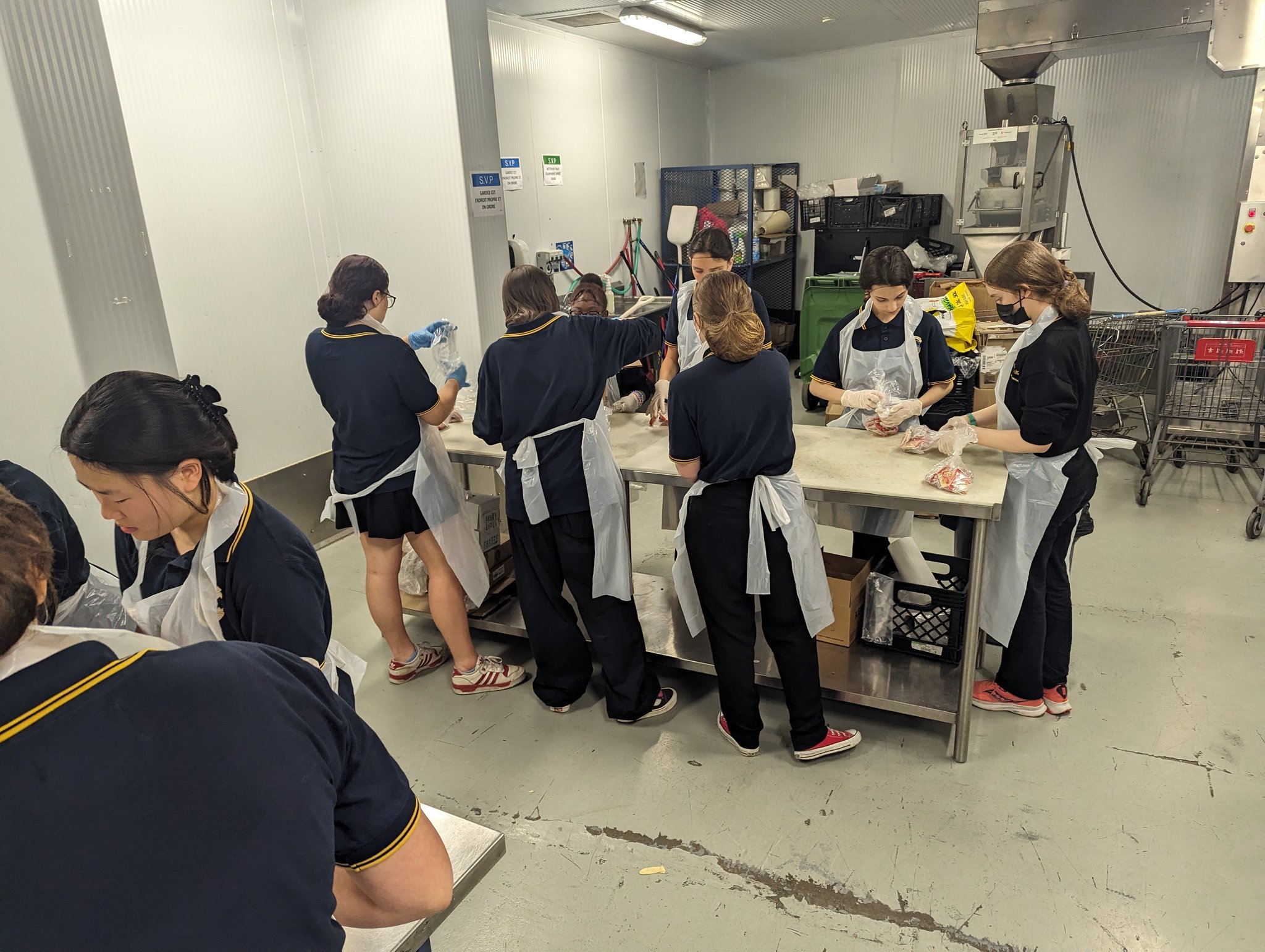
The MYP Curriculum Model reveals how students must study at least one subject strand within each of the eight MYP subject areas. There is a minimum time requirement per year that the school must meet for each of these areas, which shows the commitment the MYP has to every subject.
The Learner Profile is core to the model and emphasizes the central importance of each student. Encircling the Learner Profile of the student are the Global Contexts which link the subjects and student learning to the real world.
The Global Contexts compose a middle ring representing the relationship generated between the learner and the subjects.
The Personal Project is the accumulation of this learning, as is our Community & Service Commitment.
The Approaches to Learning (ATL) concern the skills students develop in each grade to understand and manage their own learning process.
Subject Briefs
Assessments
MYP assessment standards are consistent around the world. In order to maintain the rigour for which the IB is renowned, the MYP assessment model is criterion-related. Teachers structure varied and valid assessment tasks so that students can demonstrate achievement according to objectives defined by the IB. Tasks are assessed against established criteria, not against the work of other students.MYP Personal Project
The MYP Personal Project is completed by Grade 11 students at MMA. For students completing the MYP Graduation Requirements, the Personal Project (PP) has particular importance. The Personal Project encourages students to use a combination of skills developed through the 5-year program. In particular, students will demonstrate the extent of their independent learning skills through Approaches to Learning (ATL). Students keep a journal documenting their problem-solving strategies and the learning process, so that when they examine what the experience of making their Personal Project has been, they can fully discuss it in the essay that accompanies the project itself.
There are three parts to the Personal Project:
- The process journal
- The project itself
- The report discussing the ATL process
The Personal Project is an excellent opportunity for students to produce truly creative pieces of work of their own choice even if it has not been represented by one of the subject areas. The personal project may take many forms. Here are some examples:
- An original work of art (visual, dramatic, performance)
- A written piece (literary, social, psychological)
- A piece of literary fiction (creative writing)
- An original science experiment
- An invention or specially designed object or system
- The presentation of a developed business or management plan for an enterprise, business, special event or project.
- An extended piece of writing. The project may address a debatable topic.
At the end of the Personal Project process, the students, parents and supervisors celebrate the hard work that has accompanied their learning by a Personal Project Evening.
As IB learners we strive to be...
Inquirers
|
We nurture our curiosity, developing skills for inquiry and research. We know how to learn independently and with others. We learn with enthusiasm and sustain our love of learning throughout life. |
Knowledgeable
|
We develop and use conceptual understanding, exploring knowledge across a range of disciplines. We engage with issues and ideas that have local and global significance. |
Thinkers
|
We use critical and creative thinking skills to analyse and take responsible action on complex problems. We exercise initiative in making reasoned, ethical decisions. |
Communicators
|
We express ourselves confi¬dently and creatively in more than one language and in many ways. We collaborate effectively, listening carefully to the perspectives of other individuals and groups. |
Principled
|
We act with integrity and honesty, with a strong sense of fairness and justice, and with respect for the dignity and rights of people everywhere. We take responsibility for our actions and their consequences. |
Open-minded
We critically appreciate our own cultures and personal histories, as well as the values and traditions of others. We seek and evaluate a range of points of view, and we are willing to grow from the experience. |
Caring
We show empathy, compassion and respect. We have a commitment to service, and we act to make a positive difference in the lives of others and in the world around us. |
Risk-takers
We approach uncertainty with forethought and determination; we work independently and cooperatively to explore new ideas and innovative strategies. We are resourceful and resilient in the face of challenges and change. |
Balanced
We understand the importance of balancing different aspects of our lives—intellectual, physical, and emotional—to achieve well-being for ourselves and others. We recognize our interdependence with other people and with the world in which we live. |
Reflective
We thoughtfully consider the world and our own ideas and experience. We work to understand our strengths and weaknesses in order to support our learning and personal development. |
What is the best way you learn? Do you need quiet? Do you need to talk about it? Do you need deadlines to finish your work?
A unifying thread throughout all MYP subject groups, approaches to learning (ATL) provide the foundation for independent learning an encourage the application of their knowledge and skills in unfamiliar contexts. Developing and applying these social, thinking, research, communication and self-management skills helps “students learn how to learn”.
| Communication | Communication Skills | ||
|---|---|---|---|
| Exchanging thoughts, messages and information effectively through interaction. | How can students communicate through interaction? | ||
| Reading, writing and using language to gather and communicate information | How can students demonstrate communication through language? | ||
| Social | Collaboration Skills | ||
| Working effectively with others. | How can students collaborate? | ||
| Self-Management | Organization Skills | ||
| Managing time and tasks effectively. | How can students manage their own state of mind? | ||
| Affective Skills | |||
Managing state of mind:
| How can students manage their own state of mind? | ||
| Reflection Skills | |||
| (Re)considering the process of learning; choosing and using ATL skills. | How can students be reflective? | ||
| Research | Information Literacy Skills | ||
| Finding, interpreting, judging and creating information. | How can students demonstrate information literacy? | ||
| Media Literacy Skills | |||
| Interacting with media to use and create ideas and information. | How can students demonstrate media literacy? | ||
| Thinking | Critical Thinking Skills | ||
| Analyzing and evaluating issues and ideas. | How can students think critically? | ||
| Creative Thinking Skills | |||
| Generating novel ideas and considering new perspectives. | How can students be creative? | ||
| Transfer Skills | |||
| Using skills and knowledge in multiple contexts. | How can students be creative? | ||
Guides
General Information (All)
|
Creative
| Health & Social |
Languages | Math, Science & Technology
|
Forms (All)
|
